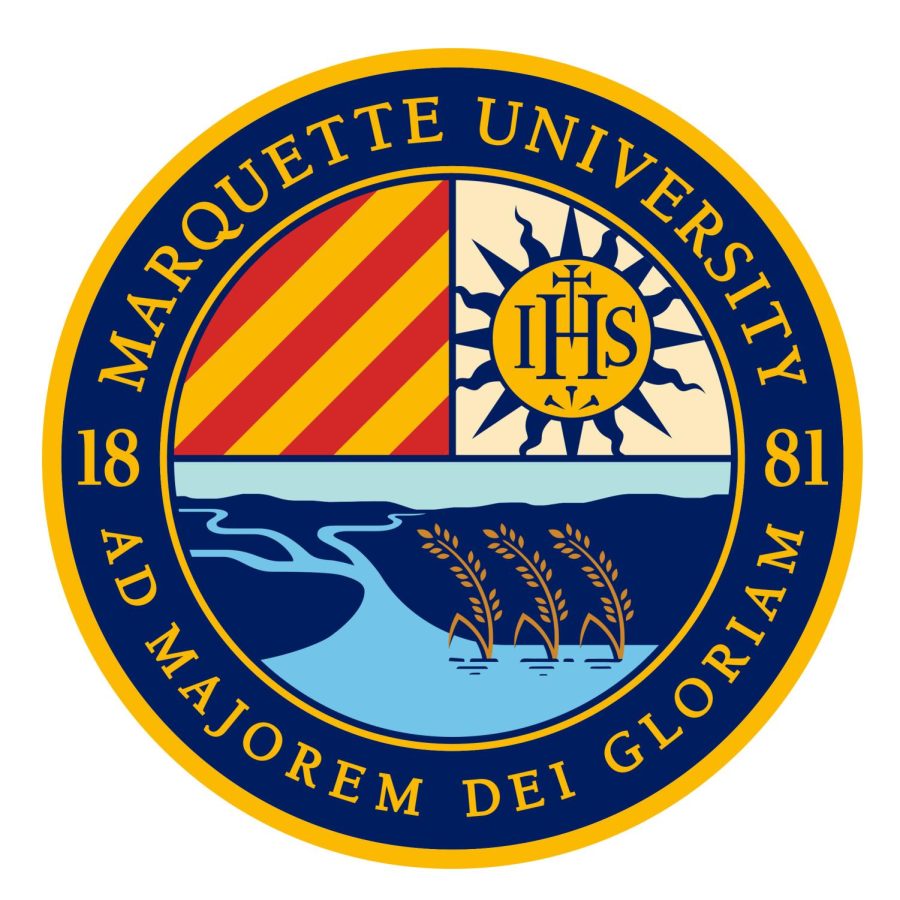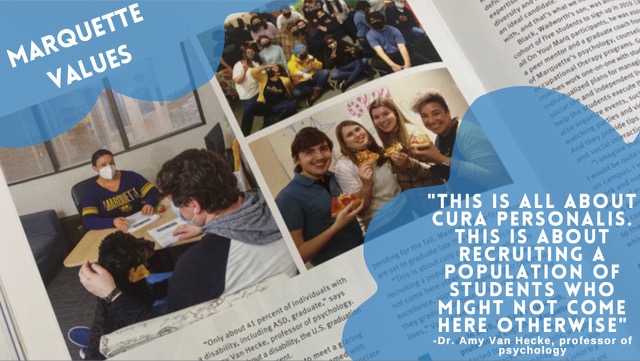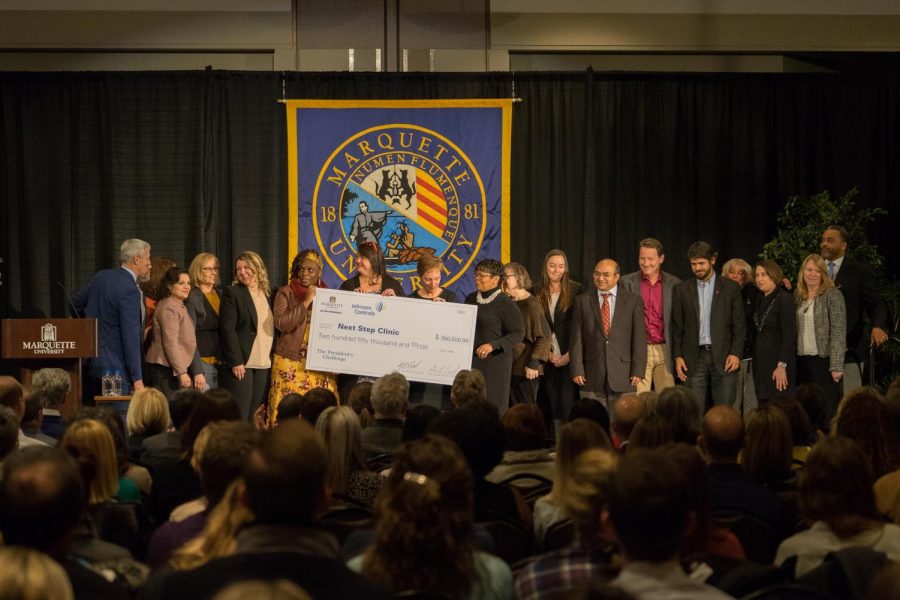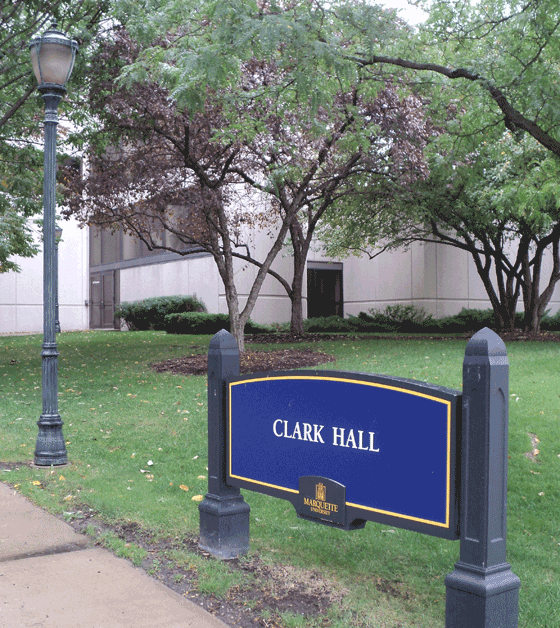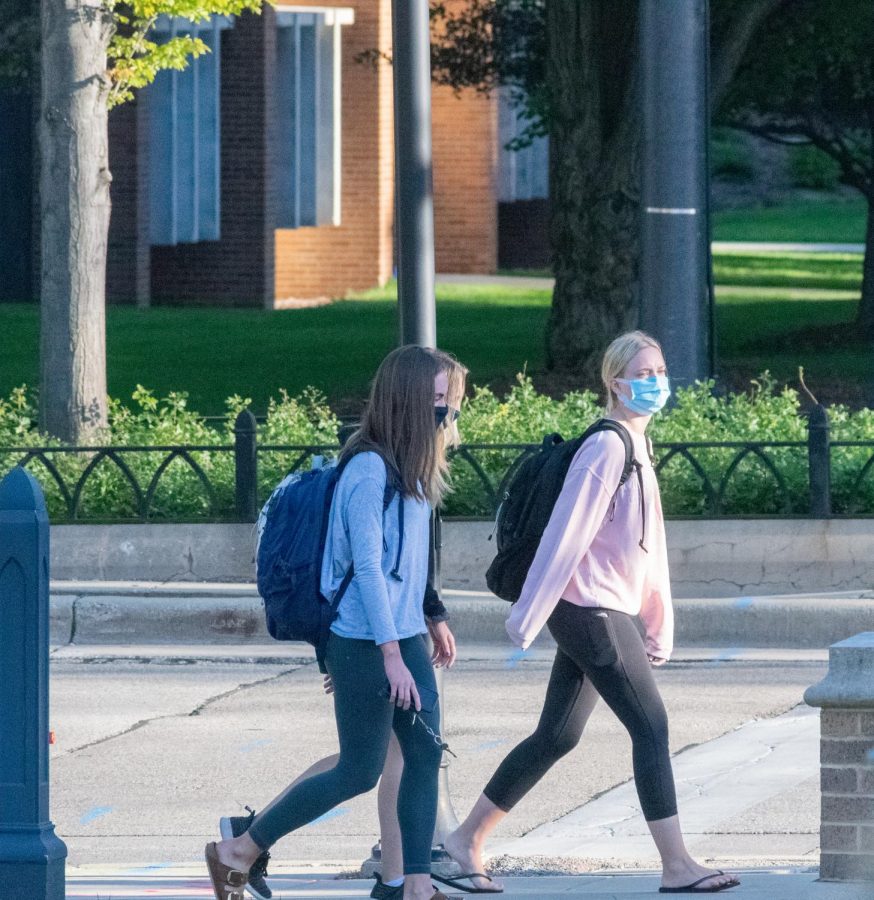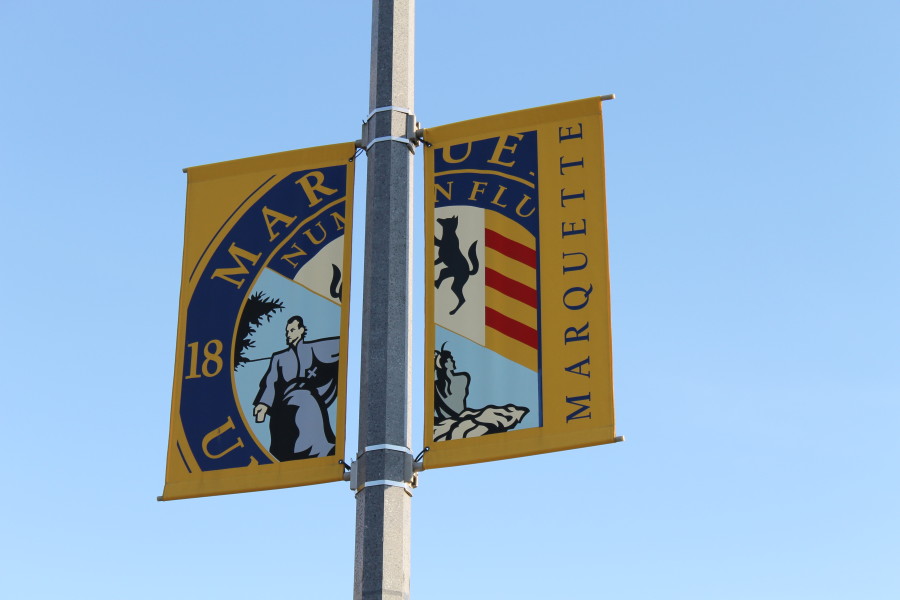A proposal for a course on autism spectrum disorders created by three Marquette faculty members won the Way Klingler Teaching Enhancement Award last week. The award recognizes teaching that allows the advancement of research and scholarship, according to the Marquette website.
Wendy Krueger, a clinical instructor in the College of Health Sciences; Mary Carlson, an adjunct instructor in the College of Education; and Amy Van Hecke, an assistant professor in the College of Arts & Sciences, are in the process of creating the course for spring semester 2014.
Krueger, Carlson and Van Hecke will all work on the class titled, “Educating Students about Autism: Putting the Pieces Together through an Integrated, Experiential Approach.” The course will use a multidisciplinary approach to teaching and learning from three professors in separate fields along with experiential learning opportunities.
Winners of the Way Klingler Teaching Enhancement Award are selected by the Committee on Teaching and approved by the provost. The committee consists of one faculty member from each college or school as well as student representatives from Marquette Student Government and Graduate Student Association.
Gary Meyer, the vice provost for undergraduate programs and teaching and a member of the Committee on Teaching, said the committee received four applications this year.
“This course holds much promise, especially for students in psychology, education and speech pathology and audiology but also for students in any field who want to gain a deeper understanding of how to work with individuals across the autism spectrum,” Meyer said.
Carlson said she was stunned and delighted when she heard they won the award and that she could share the experience with her colleagues.
“One of the really great things about Marquette is that there are so many opportunities for faculty to learn with and from one another and the community,” Carlson said. “I suspect that one of the appealing factors about our proposal was what we call the ‘silo-busting’ aspect — breaking out of our ivory towers to come together and create a whole that is so much greater than the sum of its parts.”
Krueger said she and her colleagues are excited and honored to collaborate together for the development of the course.
“The three of us will demonstrate first-hand to students the value of a multi-disciplinary approach to see the benefits of varied perspectives and contributions from each discipline,” Krueger said. “Students will experience this themselves through group projects requiring collaboration among students from each field.”
The most important thing they hope to accomplish, Krueger said, is preparing students studying education, psychology and speech-language pathology to work with those who have autism spectrum disorders.
Krueger said she hopes the Marquette community will continue to embrace individuals within the student body, faculty and staff and Milwaukee with ASD and other differences.
Carlson said now that they’ve won the award, an immense amount of work lies ahead of them.
“The writing process was remarkably easy considering we were three people who didn’t really know each other,” Carlson said. “I am hoping that we can laugh as much next summer creating the course as we did writing the proposal.”
Carlson teaches a course called, “Teaching Exceptional Children in the General Education Classroom.” She said she has had experiences with some students who become so captivated by children who are diagnosed with special needs that they often request more coursework relating to the subject.
“This will help to put more tools in the tool belts of our pre-service teachers, helping them to make every learner flourish and be as successful as they can be,” Carlson said.
Van Hecke said that she is honored and excited to be developing a new course incorporating her research.
“My research is on the effects of intervention on the brain in teenagers and young adults with autism,” Van Hecke said. “We run a social skills intervention in the department of psychology and then examine how young people who do well in the intervention also show changes in their brain activity.”

